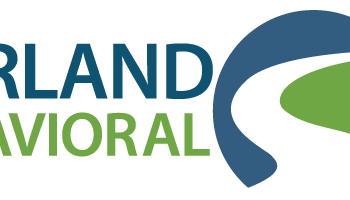Resurrection Clinic Lexington
About Resurrection Clinic Lexington
Resurrection Clinic is a mental health and addiction treatment clinic in Lexington, Kentucky. It welcomes adults struggling with substance abuse, and is open to new clients, including those without insurance coverage, whom it can accommodate with various flexible and accessible options. Meanwhile, most health insurance plans are accepted.
An Outpatient Drug Rehab in Fayette County
The primary focus of care here is on opioid use disorder, for which medication-assisted treatment (MAT) is offered. FDA-approved medications like Vivitrol and Suboxone are used as options for this, which clients can access through structured programming, alongside ongoing medical evaluations and support, without the need for any overnight stays.
Alongside MAT, clients can also expect to engage in regular counseling and medication management services.
The focus is on providing a judgement-free environment that’s conducive to long-term recovery. A space that supports clients through every step in their journey towards ongoing sobriety.
Clients are encouraged to pursue fresh beginnings in their lives and rebuild from the ground up, even if it means unwinding at local green spaces like Cross Keys Park. This philosophy is reflected in the facility’s name and messaging
Former clients have praised the staff for their dedicated care and compassion. Meanwhile, others note how their hope was restored following treatment here, as they were supported through feelings of being lost in their addiction.
Accessible & Tailored Addiction Treatment
Based near downtown Lexington, the facility is accessible, offering clients easy access to various community resources and amenities like pharmacies and public transport links. Meanwhile, clients can seek respite and relaxation in the nearby Duncan Park or Gardenside Park. They’re ideal spots for mindful movement and outdoor activities to support the healing process.
| Levels of Care | Detox Service Setting | Programs | Payment Options |
|---|---|---|---|
|
Inpatient and residential programs provide round-the-clock medical and emotional support as you live at the treatment facility. This level of care may be recommended if you have severe addictions or mental health conditions since it removes outside distractions and allows you to focus solely on therapy. |
In outpatient therapy, you’ll attend therapy sessions several times each week while living at home. This is ideal if you have a strong support system and a lower risk of relapse. Outpatient treatment offers flexibility to maintain work, school or family obligations. |
||
|
Inpatient detox occurs in a dedicated treatment facility. You’ll live there around the clock and receive intensive medical support and supervision to help manage your withdrawal symptoms. It is suitable for individuals with moderate to severe addictions as it ensures a stable detox environment. |
Outpatient detox gives you access to medically supervised withdrawal services while still allowing you to live at home. You’ll attend a clinic for treatment and monitoring. This flexible option is suitable for those with mild to moderate withdrawal symptoms who have strong support systems. |
||
|
Alcohol detox programs offer medical support to help individuals withdraw safely from alcohol. Your care team may use medications to ease your symptoms and provide medical monitoring to address complications. |
Drug detox programs support individuals who are withdrawing from addictive substances like cocaine and heroin. Medical support helps you manage symptoms in a controlled and safe environment so you can achieve initial sobriety. |
||
|
Private Insurance
|
Self Pay
|
Levels of Care
Inpatient and residential programs provide round-the-clock medical and emotional support as you live at the treatment facility. This level of care may be recommended if you have severe addictions or mental health conditions since it removes outside distractions and allows you to focus solely on therapy.
In outpatient therapy, you’ll attend therapy sessions several times each week while living at home. This is ideal if you have a strong support system and a lower risk of relapse. Outpatient treatment offers flexibility to maintain work, school or family obligations.
Detox Service Setting
Inpatient detox occurs in a dedicated treatment facility. You’ll live there around the clock and receive intensive medical support and supervision to help manage your withdrawal symptoms. It is suitable for individuals with moderate to severe addictions as it ensures a stable detox environment.
Outpatient detox gives you access to medically supervised withdrawal services while still allowing you to live at home. You’ll attend a clinic for treatment and monitoring. This flexible option is suitable for those with mild to moderate withdrawal symptoms who have strong support systems.
Programs
Alcohol detox programs offer medical support to help individuals withdraw safely from alcohol. Your care team may use medications to ease your symptoms and provide medical monitoring to address complications.
Drug detox programs support individuals who are withdrawing from addictive substances like cocaine and heroin. Medical support helps you manage symptoms in a controlled and safe environment so you can achieve initial sobriety.
Contact

Lauren wears many hats, and works as a holistic deep tissue massage therapist, content strategist, and copywriter. She’s been writing copy and dreaming up content for a number of brands for almost 10 years, having worked with a mixture of B2B and B2C brand. Some of her more notable clients include adidas, Gucci, Pepsi, and Hotels.com. A skilled editor and copywriter, she also enjoys planning content for social media and brand marketing campaigns.

Peter W.Y. Lee is a historian with a focus in American Cold War culture. He has examined how popular culture has served as a coping mechanism for the challenges and changes impacting American society throughout the twentieth century.




